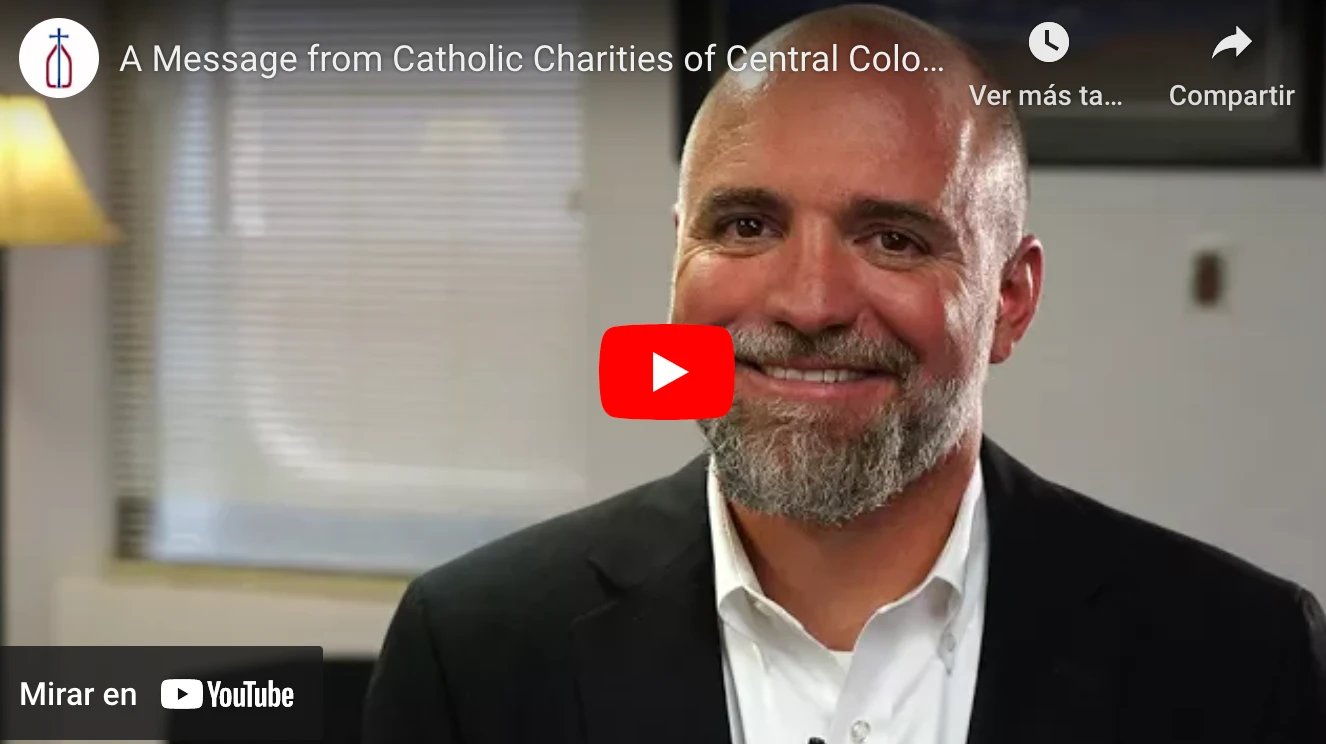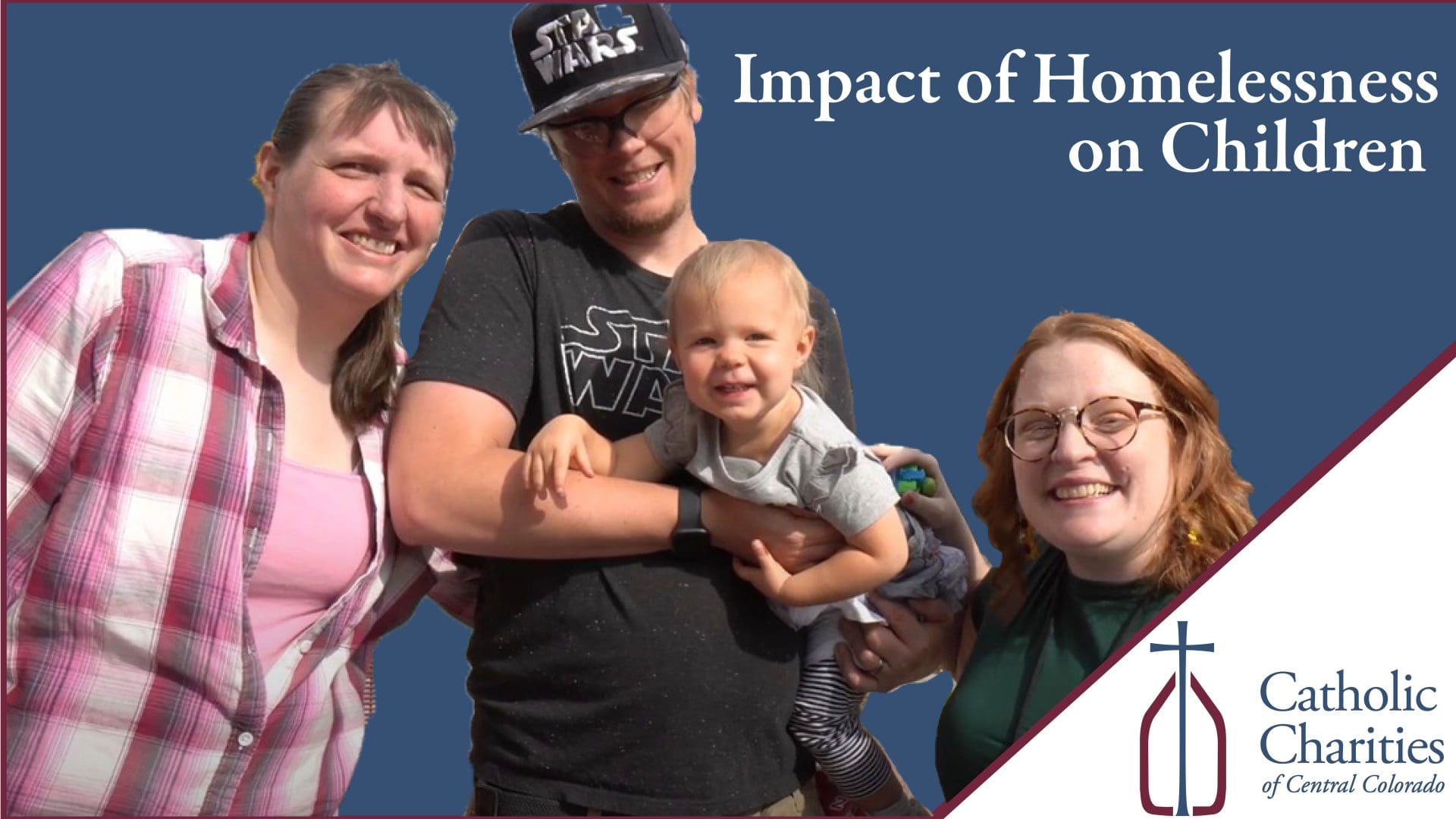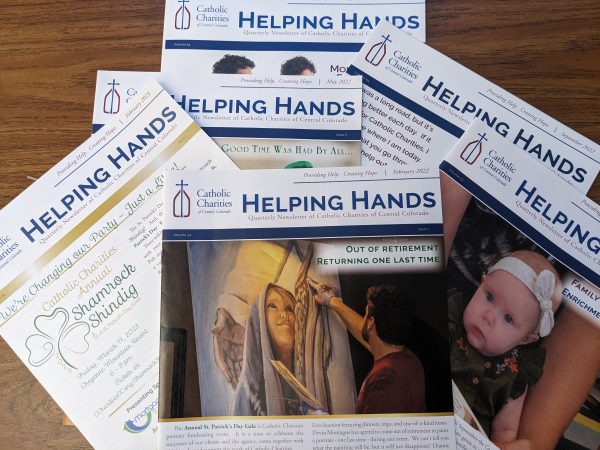
BY ANDY BARTON
Working for Catholic Charities provides me with unique and wonderful opportunities. One of them is this column which grants me a voice throughout the diocese every six weeks. Another is the chance to meet and get to know the people we serve. Some of the most meaningful interactions I have had in this work are with our homeless brothers and sisters. For a variety of reasons, including the stigma that surrounds our homeless, it is a group whose story I rarely heard before working here. This month, I thought I would use this space to introduce some of the people I have met and share a bit of their stories.
Gerald used to sleep in the doorway of the chancery building and I would see him in the early mornings as he was packing up. He was always gone by the time most of the building staff arrived. He is short and skinny with a rough beard and caring eyes. Gerald is soft-spoken and sweet, but also distant. We have visited frequently but he never remembers or recognizes me. The combination of mental illness and alcohol makes it hard for Gerald to stay in a shelter or housing. He seeks treatment for routine ailments but will not accept help with his mental health. He does not want to stop drinking. The trauma, addiction, and fear that drive his decisions are incomprehensible to me. When I see him during the day, I am relieved that he has made it through another night.
“Bear” does remember our conversations. He has my cell number and occasionally texts to remind me of what we have discussed. He is a recovering addict who has stayed sober despite living on the street. Bear is a big man with a thick beard, and he sits on benches downtown listening to music and striking up conversations with people passing by. He cannot get into a shelter because of an accusation of past violent behavior (which he claims is false). He cannot find housing because he is a registered sex offender. He is unapologetic and explicit in his assessments of things he disagrees with, and I suspect that has helped him find trouble.
Billy was sitting outside a cold weather shelter smoking a joint the first time I met him. He was with a loud group of guys and offered for me to join them (which I declined). He was clean-shaven with short hair and a devious smile. Throughout the years, he disappeared for months and then showed up, explaining that he was in jail or on the road. He was always sharing a house or a motel room with a bunch of people that he really did not like, and he was working some angles to improve his situation. I saw Billy for the last time at the beginning of Covid, which he claimed was a government conspiracy. My prayer is that one of his angles played out and he is living stably and working.
I met Ronny while helping him push his car down the street in front of our offices in morning traffic. Everything he owned, including a cat named Pam, was inside. It was also where he slept. But the car did not run, and he did not have money to repair it. He had been parked too long in the nearby residential neighborhood and the police had given him 48 hours to move it before it would be impounded. As he pushed his car, he told me that he just wanted to die. He had fought in Vietnam but had been dishonorably discharged so he was ineligible for Veterans Affairs benefits. He did not go into a shelter because he would lose his car if he did. Plus, he did not want Pam in the shelter’s special pet kennels with dogs. When we finally got the car off the street and into a parking spot, he left with Pam to go to the post office where he said a check was waiting for him. The car was gone when I went home that night: I still see it and Ronny parked around downtown from time to time.
I have found myself caring for all these men, despite their criminal records and addictions. They would be the first to acknowledge that they are not angels. Marian House staff and volunteers have seen them at their worst: spitting, intimidating, urinating, and cussing. They are, I believe, how most people imagine homeless men. They can be sympathetic and despicable, funny and terrifying; not because they are homeless, but because they are human. The difference is that something fundamental has broken down: family, education, health, or all the above. To listen to their stories is to understand how frustratingly complicated the conditions of homelessness can be. Thank you for letting me share them with you.
Andy Barton is the President and CEO of Catholic Charities of Central Colorado. This article first appeared in the Colorado Catholic Herald.





Leave a Reply